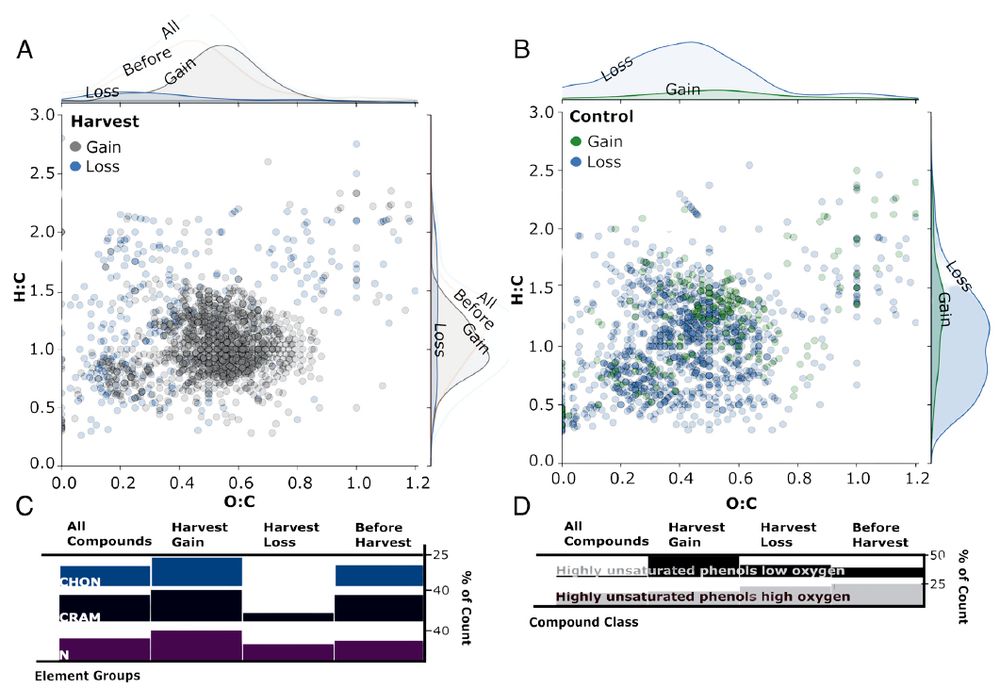
🚨 Important for climate change 🚨
Grateful for support from NRCan, NSERC, and the ERC. 3/3
🚨 Important for climate change 🚨
Grateful for support from NRCan, NSERC, and the ERC. 3/3
This carbon was as favourable for microbial degradation as that in unburned streams!🦠 2/n


This carbon was as favourable for microbial degradation as that in unburned streams!🦠 2/n


Our study revises downward carbon storage in wood and suggest we must improve practices to make logging sequester carbon. These effects are likely playing out over millions of hectares of hemiboreal forests globally 🌎 6/n


Our study revises downward carbon storage in wood and suggest we must improve practices to make logging sequester carbon. These effects are likely playing out over millions of hectares of hemiboreal forests globally 🌎 6/n
We found that carbon was more available for microbes to use by introducing new molecules from fresh plant material and disturbed soils. These changes lasted for >2 years. 5/n

We found that carbon was more available for microbes to use by introducing new molecules from fresh plant material and disturbed soils. These changes lasted for >2 years. 5/n







